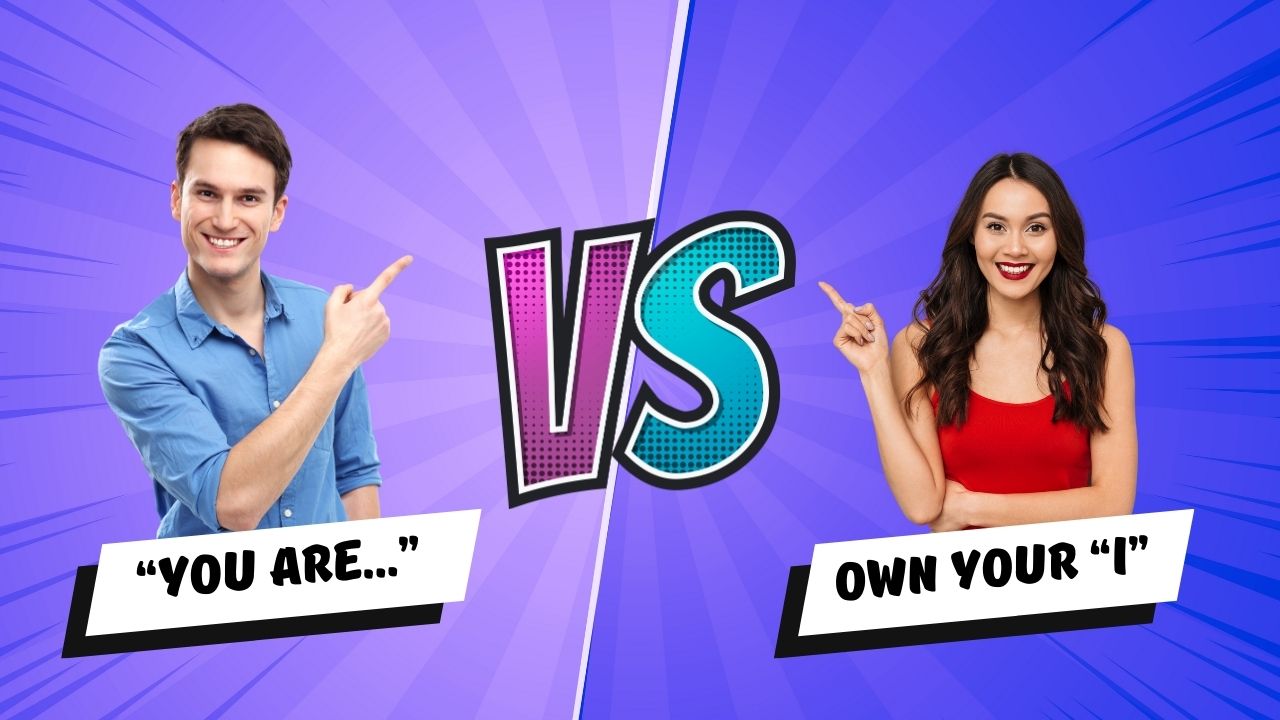
Owning Your Story
One way to effectively manage conflict is to own your story and your voice by using I-Statements. These statements directly express your thoughts, needs, feelings, and experiences to the people around you. I-statements allow us to take responsibilities for our experiences and places the power of our lives in our own hands. I-statements look like this:
- I feel…
- I think…
- I experienced it like this…
- I want…
- I need…
I-statements are contrasted with You-Statements. These statements imply the other person is responsible for something. You-statements typically place blame on the other person. You-statements look like this:
- You made me feel…
- You don’t care about me.
- You never think about how that would impact us.
- You didn’t…
| I-Statements vs You-Statements | |
| I felt unappreciated. | You don’t care about me. |
| I need some help. | You are a freeloader and never help. |
| I felt… | You made me feel…. |
| It makes me sad to be left out. | You never invite me out with your friends. |
Watch out for those Fake I-Statements that so regularly sneak into our conversations. “I feel you…”, “I think you”, “I want you to…” are hidden You-Statements.

